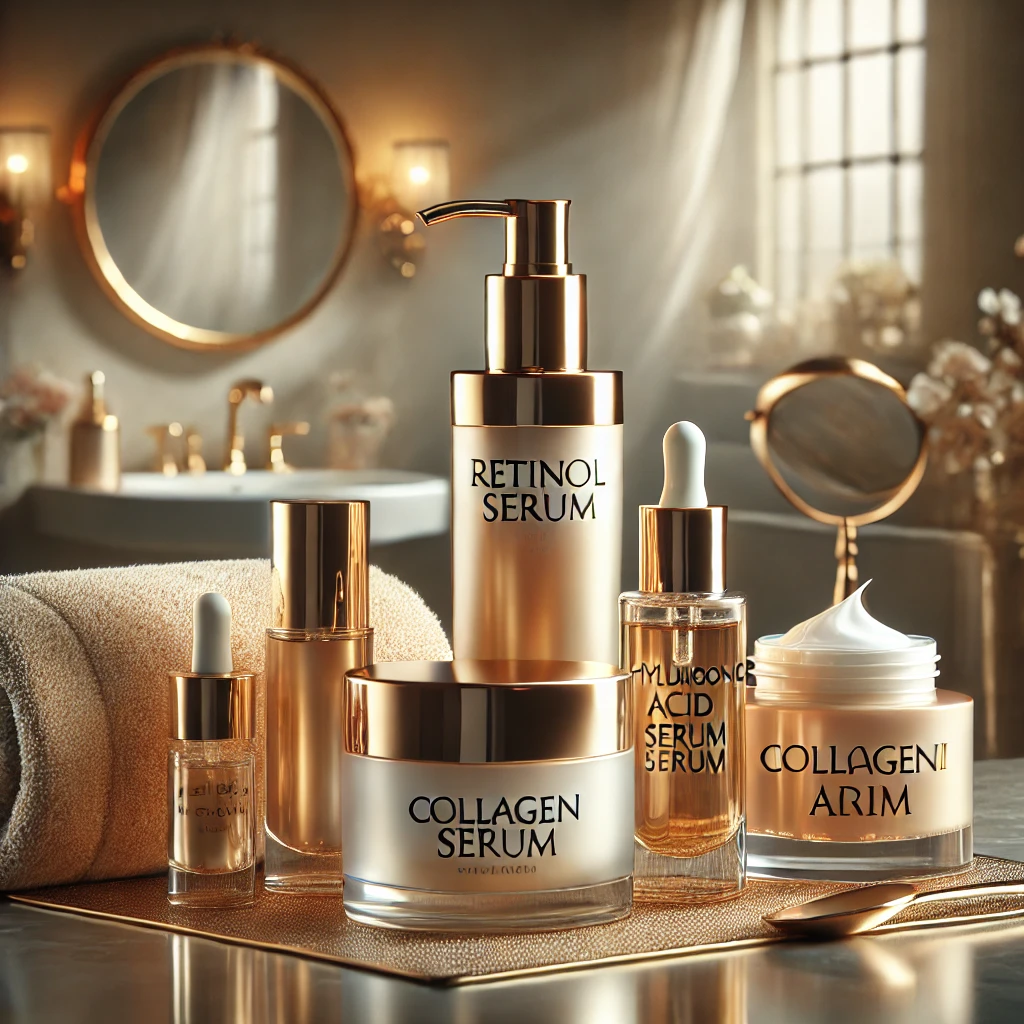Anti-aging for Mature Skin: The Ultimate Guide to Timeless Beauty
As we age, our skin undergoes numerous changes. Collagen production decreases, fine lines and wrinkles become more prominent, and skin elasticity is lost. For mature skin, the right products can make all the difference, helping to restore a youthful glow and maintain skin health. This guide explores the best anti-aging for mature skin, focusing on ingredients, routines, and effective treatments that target signs of aging.
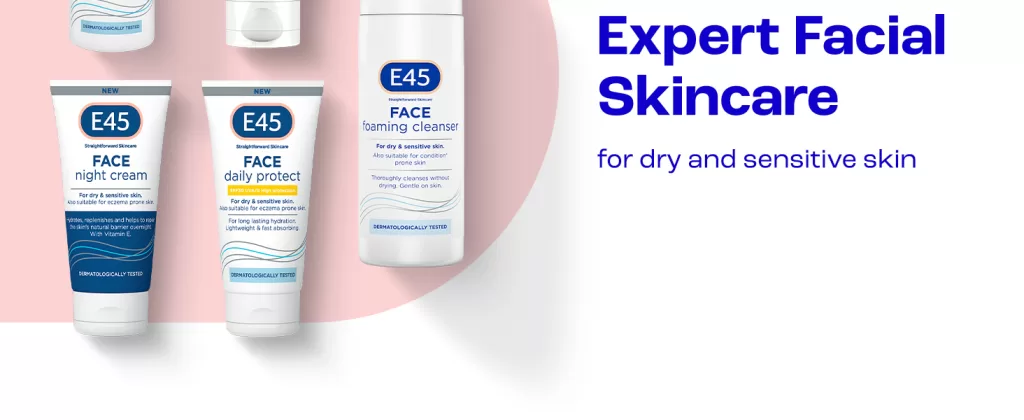
When You Don’t Need Anti-aging Products: Skincare Tips for Teens and Younger Adults
While anti-aging products are essential for mature skin, younger individuals (teens and those in their 20s and early 30s) may not yet need to focus on anti-aging. Instead, a solid skincare routine aimed at prevention and maintaining healthy skin will go a long way in the long run. Here’s how teens and younger adults can care for their skin:
- Stick to the Basics: Make sure to cleanse, tone, and moisturize daily. These steps are foundational to keeping skin healthy and vibrant.
- Sun Protection is Key: Sunscreen should be a daily habit, rain or shine. It’s your best defense against premature aging caused by harmful UV rays.
- Antioxidants for Prevention: Incorporating a vitamin C serum can help protect your skin from environmental damage, ensuring it stays resilient and youthful-looking over time.
Once you notice visible signs of aging, like fine lines, wrinkles, or uneven skin tone, it’s time to consider introducing anti-aging products into your routine. These can include:
- Hydrating Serums: To plump the skin and smooth out the appearance of fine lines.
- Exfoliating Treatments: To enhance skin texture and promote cell turnover.
- Targeted Dark Spot Solutions: To address pigmentation and maintain an even complexion.
As everyone’s skin is unique, consulting with a skincare professional can help tailor a regimen that addresses your specific concerns and goals, ensuring your skin remains youthful and healthy for years to come.
1. Basic Skincare Routine
For younger skin, maintaining a simple skincare routine is key. Instead of anti-aging products, focus on these essentials:
- Gentle Cleanser: Use a mild cleanser that suits your skin type (gel cleansers for oily skin, cream cleansers for dry skin).
- Moisturizer: Choose a lightweight moisturizer to keep skin hydrated. Look for formulas that balance oil and moisture without clogging pores.
- Sunscreen: The most important product in any skincare routine, sunscreen prevents premature aging by protecting against harmful UV rays. Choose an SPF of 30 or higher and apply it daily.
2. Focus on Prevention
The primary goal for younger skin is prevention:
- Hydration: Drink plenty of water and use a hydrating serum if needed to keep skin plump and healthy.
- Nutrition: Eat a balanced diet rich in antioxidants, vitamins, and healthy fats, which contribute to glowing, youthful skin.
- Avoid Harsh Products: Avoid heavy anti-aging serums or treatments, as they may not be necessary and could potentially irritate younger skin. Stick to gentle, nourishing products instead.
3. Targeted Treatments
For specific concerns like acne or uneven skin tone, consider adding products like:
- Salicylic Acid or Benzoyl Peroxide for acne.
- Niacinamide for redness or hyperpigmentation.
- Gentle exfoliation with AHAs or BHAs to keep skin smooth and clear.
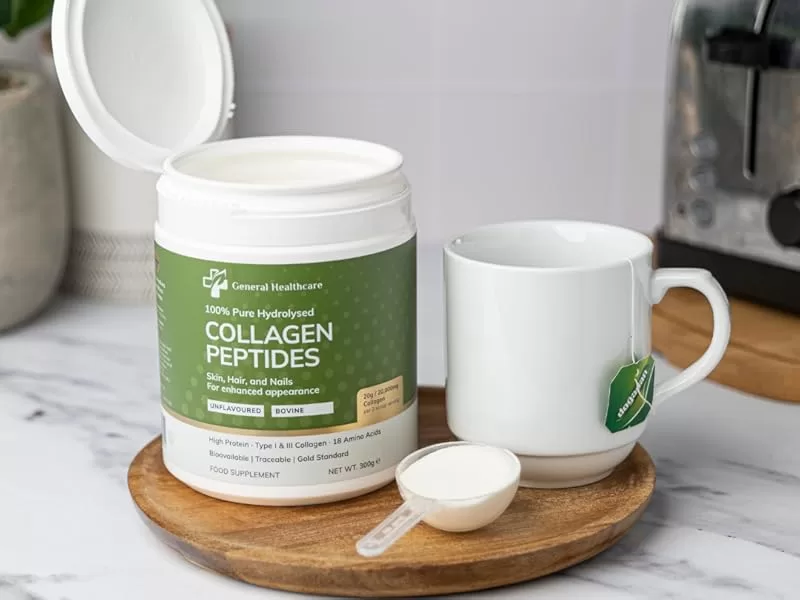
Collagen Powder Bovine Peptides, Type I & III, 100% Pure Hydrolysed Gold Standard, with 18 Amino Acids, Collagen Supplement by General Healthcare – 20g / 20,000mg Collagen (Unflavoured)(300g)
What Happens to Our Skin as We Age?
Before diving into anti-aging products, it’s essential to understand how and why our skin changes over time. As we age, the following skin changes typically occur:
- Decreased collagen production: Collagen gives skin its structure and firmness. As production slows, skin becomes saggy and less elastic.
- Reduced cell turnover: The skin’s ability to shed dead cells slows down, leading to dullness and uneven texture.
- Thinning skin: With age, the dermis thins, making skin more fragile and prone to wrinkles.
- Increased dryness: Older skin produces less oil, making it more susceptible to dehydration.
Understanding the Factors Behind Skin Aging
Aging skin is influenced by a combination of internal and external factors. Here’s a closer look:
- Internal (Intrinsic) Aging:
- Genetics: Our genetic makeup plays a fundamental role in determining how quickly and visibly our skin ages.
- Cellular Damage: Factors such as free radicals, inflammation, and hormonal shifts can damage cells, reducing the skin’s ability to repair itself effectively. This process manifests as fine lines, wrinkles, and sagging skin, along with a loss of plumpness and increased dryness.
- External (Extrinsic) Aging:
- Environmental Factors: Exposure to UV rays, air pollution, and lifestyle choices, including diet, smoking, and alcohol consumption, significantly impact skin aging.
- Visible Signs: These external contributors lead to discoloration, dark spots, wrinkles, and redness, accentuating the aging process.
By understanding these intrinsic and extrinsic factors, you can make informed decisions about skincare routines and products that address the root causes of aging skin.
Understanding Skin Glycation and Its Effects
Skin glycation is a process that impacts your skin’s health and appearance, often without people even realizing it.
What Happens During Glycation?
- Sugar Molecules Collide: Glycation occurs when excess sugar in your bloodstream binds to proteins, forming advanced glycation end-products (AGEs).
- Collagen and Elastin Impact: The proteins most affected by glycation are collagen and elastin. These are vital for maintaining skin’s firmness and elasticity.
- Stiffening Proteins: Over time, the accumulation of AGEs can make these proteins stiff and less flexible, affecting skin resilience.
Effects of Glycation on Skin
- Wrinkles and Fine Lines: As collagen becomes more rigid, the skin loses its ability to bounce back, leading to wrinkles and fine lines.
- Loss of Elasticity: With the deterioration of elastin, skin becomes less stretchy and begins to sag.
- Dull Complexion: AGEs can also impede the skin’s repair process, leading to a lackluster appearance.
Managing Glycation
To combat the effects of glycation, consider steps like:
- Following a balanced diet with limited sugar.
- Using skincare products rich in antioxidants like vitamin C or E.
- Exploring treatments with ingredients such as retinoids or peptides to support collagen health.
Understanding and addressing skin glycation can significantly impact your skincare routine and overall skin appearance. By incorporating preventive measures into your lifestyle, you can preserve your skin’s youthful glow.
Understanding Skin Glycation
Skin glycation is a process that directly impacts the health and appearance of your skin. When glucose, a type of sugar, binds to proteins like collagen and elastin in the skin, it forms harmful molecules known as Advanced Glycation End Products (AGEs).
Effects of Glycation:
- Collagen Damage: Collagen gives skin its firmness. When compromised by AGEs, it leads to sagging and wrinkles.
- Elasticity Loss: Glycation affects elastin, essential for skin’s suppleness, resulting in dull, less elastic skin.
- Accelerated Aging: The visible signs of aging are amplified as AGEs accumulate, reducing skin resiliency.
Factors Contributing to Glycation
- Diet High in Sugar: Excessive sugar intake is a primary trigger for glycation, intensifying the AGEs formation.
- Environmental Stressors: Pollution and UV exposure can exacerbate glycation, making protective measures crucial.
Mitigating Glycation
- Balanced Nutrition: Reducing sugar consumption and eating antioxidant-rich foods helps decrease AGE production.
- Skincare Solutions: Ingredients like vitamin C, retinoids, and peptides in skincare products can support collagen defense.
- Lifestyle Habits: Regular exercise and stress management also play roles in mitigating glycation effects.
Understanding and addressing skin glycation is key to maintaining a youthful, vibrant complexion. Adding targeted skincare, alongside lifestyle adjustments, can thwart premature aging and promote skin health.
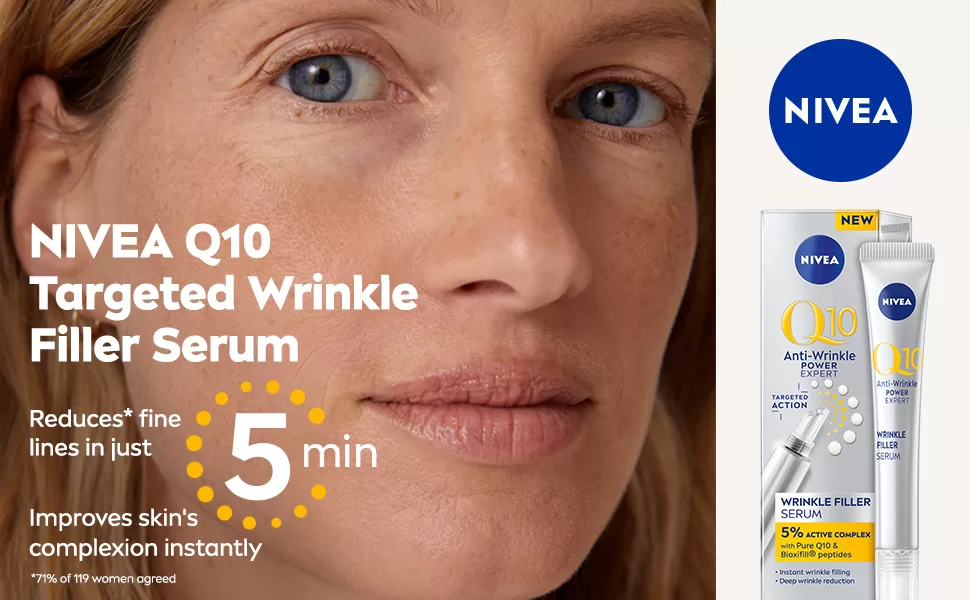
Lifestyle and Biological Factors Impacting Anti-aging Mature Skin
While skincare products are essential, both biological and lifestyle factors play significant roles in how our skin ages. Understanding these can guide you in making informed choices for your skin’s health and longevity.
Internal (Intrinsic) Aging
Intrinsic aging is influenced by genetics and biological processes within the body. Here’s how it unfolds:
- Genetics: Your DNA plays a crucial role in determining how quickly or slowly your skin shows signs of aging.
- Cellular Damage: Free radicals, inflammation, and hormonal shifts contribute to cellular damage. These elements reduce the skin’s ability to repair itself, resulting in fine lines, wrinkles, sagging, and dryness over time.
External (Extrinsic) Aging
Extrinsic aging is driven by environmental factors and lifestyle choices. Here’s what to consider:
- Environmental Influences: Exposure to UV rays and air pollution are major contributors to skin aging. They can lead to discoloration, dark spots, and increased redness.
- Lifestyle Habits: Diet, smoking, and alcohol consumption are critical factors. A diet rich in antioxidants, omega-3 fatty acids, and vitamins (like A, C, and E) can support skin health. Avoid excessive sugar and processed foods, which can accelerate aging.
Lifestyle Factors That Impact Anti-aging Mature Skin
In addition to managing external factors, focusing on lifestyle improvements can further enhance skin health.
- Sleep: Poor sleep can lead to increased signs of aging, such as dark circles and dullness. Aim for 7-9 hours of quality sleep per night.
- Stress Management: Chronic stress increases cortisol levels, which can break down collagen and lead to premature aging. Incorporate stress-relief practices like meditation, yoga, or deep breathing.
- Exercise: Regular physical activity improves circulation, delivering oxygen and nutrients to the skin, which helps maintain a youthful glow.
- Avoid Smoking and Limit Alcohol: Smoking accelerates skin aging by breaking down collagen, while excessive alcohol dehydrates the skin.
By addressing both internal and external factors, as well as incorporating healthy lifestyle choices, you can significantly impact the way your skin ages. Embrace a holistic approach for radiant, youthful skin.
Best Anti-aging Products for Mature Skin
The key to an effective anti-aging routine for mature skin lies in using products that target multiple signs of aging. A comprehensive regimen should incorporate a balance of environmental protection, exfoliation, and hydration, along with targeted solutions for specific concerns.
A. Retinol-Based Products
Retinol, a form of Vitamin A, is known for its ability to boost collagen production and speed up cell turnover. This leads to smoother skin, reduced fine lines, and a more even skin tone. Retinol serums are a great addition to any anti-aging skincare routine.
B. Hyaluronic Acid Serums
Hyaluronic acid is a powerhouse ingredient when it comes to hydration. As we age, the skin loses its moisture, leading to wrinkles and sagging. Hyaluronic acid replenishes moisture, giving the skin a plump and youthful appearance.
C. Vitamin C Serums
Vitamin C is an essential antioxidant that helps combat skin damage caused by free radicals. It also brightens the skin and fades dark spots, which are common in mature skin.
D. Environmental Protection
Incorporate products that protect against environmental stressors. Daily use of a broad-spectrum sunscreen is crucial to shield your skin from harmful UV rays, preventing premature aging and discoloration.
E. Customized Solutions
To address your unique concerns, it’s important to include targeted anti-aging products tailored to your needs. Whether your focus is on minimizing fine lines, reducing wrinkles, or improving firmness and elasticity, choose products that align with your specific goals.
By combining these powerful ingredients and practices, your anti-aging skincare routine will effectively combat the signs of aging, leaving your skin looking radiant and youthful.
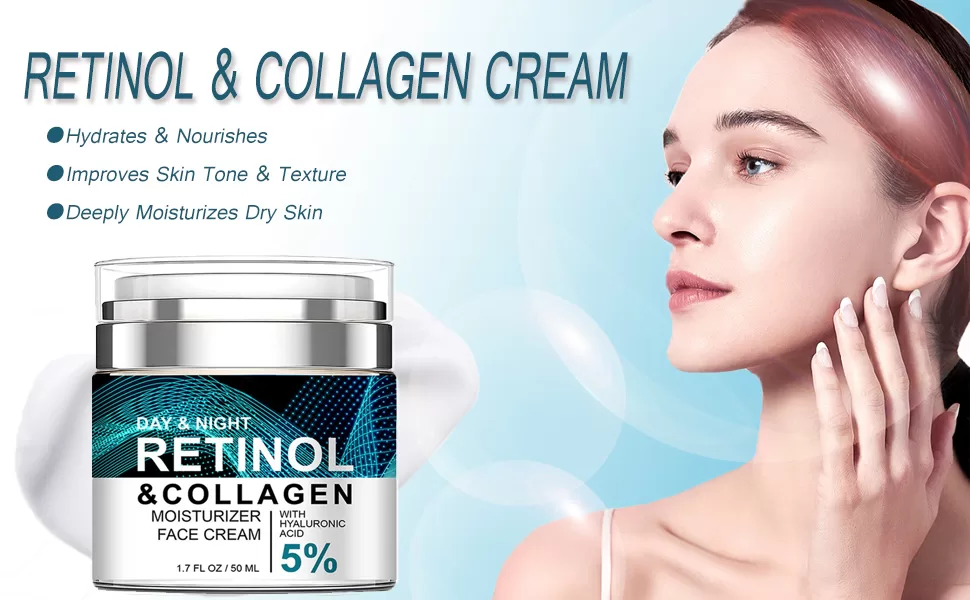
Collagen Boosting Products for Mature Skin
Collagen is essential for maintaining skin’s firmness and elasticity. As we age, the body’s natural collagen production slows down, which can result in sagging skin. The following products can help boost collagen and maintain a youthful appearance:
A. Collagen Creams and Masks
Topical collagen-boosting creams help stimulate collagen production in the skin. Look for creams containing peptides, which are known to encourage the skin’s natural collagen production.
B. Peptide Serums
Peptides are amino acids that signal the skin to produce more collagen. By incorporating peptide serums into your skincare routine, you can help restore skin elasticity and reduce the appearance of fine lines and wrinkles.
Anti-aging Moisturizers for Dry, Mature Skin
Finding the best moisturizer for aging skin involves more than just choosing a hydrating product. An effective anti-aging skincare routine should include environmental protection, exfoliation, and targeted treatments that cater to individual skin concerns.
Dry skin is a common issue in mature skin due to decreased oil production. To combat this, it’s essential to use a rich moisturizer that locks in hydration and helps strengthen the skin barrier. Look for moisturizers with ceramides, shea butter, and niacinamide. These ingredients not only hydrate but also improve the skin’s texture and barrier function, essential for combating dryness.
A. Rich Creams with Ceramides
Overnight masks are designed to deeply hydrate the skin, restoring moisture levels while you sleep. These masks are an excellent option for dry and mature skin, ensuring you wake up with a refreshed and plump complexion.
B. Overnight Hydrating Masks
Overnight masks are designed to deeply hydrate the skin, restoring moisture levels while you sleep. These masks are an excellent option for dry and mature skin, ensuring you wake up with a refreshed and plump complexion.
Additional Anti-aging Strategies
To further address aging concerns such as fine lines, wrinkles, and loss of firmness, consider incorporating products with retinoids and peptides. Retinoids are known for their ability to smooth wrinkles and improve skin tone, while peptides help to boost collagen production, enhancing elasticity.
By adopting a comprehensive skincare regimen that includes these elements, you can effectively target multiple signs of aging, ensuring your skin remains healthy, hydrated, and youthful-looking.
Common Mistakes to Avoid with Anti-aging Mature Skin
Many people unknowingly make mistakes that can worsen the appearance of mature skin. Include a section on what to avoid, such as:
- Over-exfoliating: This can strip the skin’s natural oils and damage the skin barrier, leading to irritation and dryness.
- Skipping Sunscreen: UV exposure is the leading cause of premature aging, so sunscreen is non-negotiable.
- Using Harsh Products: Avoid products with alcohol, synthetic fragrances, or overly abrasive ingredients that can irritate mature skin.
- Neglecting the Neck and Décolletage: These areas show signs of aging too, so extend your skincare routine beyond your face.
- Not Adapting to Seasonal Changes: Mature skin may need richer products in winter and lighter formulas in summer.
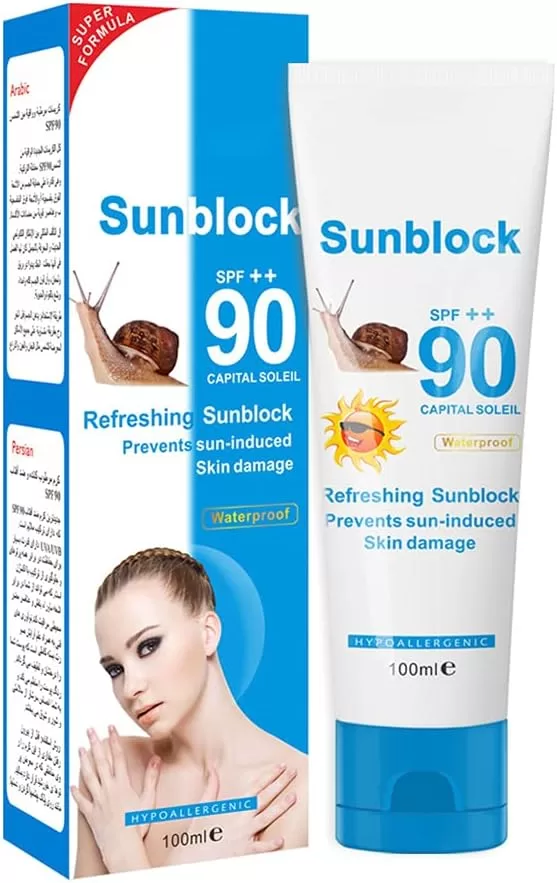
Sunscreen Cream SPF90PA++,Protection Face Cream Disaar Sunblock 90++ Protective Cream Pigmentation 100g (Sunscreen)
Understanding the Difference Between UVA and UVB Rays
Sunlight is a spectrum of various rays, but when it comes to skin health, two types are particularly significant: UVA and UVB rays. Both play distinct roles and have different effects on the skin.
UVA Rays: The Aging Culprit
- Penetration Depth: UVA rays, often called “aging rays,” can penetrate deeper into the skin’s layers. This deep penetration can damage collagen and elastin, leading to premature aging and wrinkles.
- Presence: These rays are persistent all year round, regardless of the weather, and can even penetrate through glass windows.
- Protection Tips: To guard against UVA damage, look for broad-spectrum sunscreens that specifically mention UVA protection. Products from Neutrogena or Cetaphil often include this feature.
UVB Rays: The Burning Threat
- Penetration Depth: UVB rays primarily affect the skin’s outer layers. These are the rays responsible for sunburn and can vary in intensity based on the season, location, and time of day.
- Role in Skin Cancer: UVB rays play a crucial role in developing skin cancers, including melanoma, due to their direct DNA-damaging effects.
- Protection Tips: UVB protection is indicated by the SPF number on sunscreens. High SPF products from brands like Coppertone or Banana Boat can help shield your skin effectively.
Key Differences
- Effect: While both UVA and UVB contribute to skin cancer risk, UVB is more directly responsible for skin damage, like sunburn.
- Seasonal Influence: UVA rays stay consistent year-round, while UVB rays fluctuate, being stronger in the summer months.
- Usage: It’s crucial to use a sunscreen that offers both UVA and UVB protection for comprehensive skin care.
In summary, understanding the differences between UVA and UVB rays helps in selecting the right protective measures to maintain healthy skin. Remember—incorporating both UVA and UVB protective measures in your daily routine is essential for long-term skin health.
Understanding the Differences: UVA vs. UVB Rays and Their Impact on Skin
Sunlight is vital for health, but not all its rays are friendly to our skin. When we talk about UVA and UVB rays, it’s essential to understand how they affect us differently.
UVA Rays: The Age Accelerators
- Penetration: UVA rays have a longer wavelength, allowing them to penetrate more deeply into the skin’s layers, specifically reaching the dermis.
- Effects on Skin: They are primarily responsible for premature aging, contributing to signs like wrinkles, fine lines, and loss of skin elasticity.
- Presence: UVA rays make up about 95% of the UV radiation that reaches the Earth’s surface. They remain consistent throughout the day and can penetrate through glass, making them a year-round concern.
UVB Rays: The Burn Culprits
- Penetration: UVB rays have a shorter wavelength compared to UVA rays, affecting the outermost layer of the skin, the epidermis.
- Effects on Skin: These rays are the main cause of sunburn. They play a significant role in the development of skin cancers by damaging the skin’s DNA.
- Presence: Although UVB rays are more intense during sunny days and peak during midday, they do not pass easily through glass.
Protecting Your Skin
- Broad-Spectrum Sunscreens: To defend against both UVA and UVB rays, opt for broad-spectrum sunscreens. Look for SPF ratings to ensure adequate protection, ideally SPF 30 or higher.
- Sun-Protective Clothing: Wearing hats, sunglasses, and long sleeves can also help shield your skin from these harmful rays.
- Seeking Shade: Whenever possible, reduce direct sun exposure, especially between 10 a.m. And 4 p.m., when UV radiation is strongest.
Understanding the distinction between UVA and UVB can help you tailor your sun protection strategy effectively, ensuring that your skin remains healthy and youthful for years to come.
How to Build an Effective Anti-aging Skincare Routine
Improving your skin’s texture involves a combination of consistent care and targeted treatments. An anti-aging skincare routine for mature skin should focus on hydration, exfoliation, and protection — key factors in achieving a smoother, more refined texture. Here’s how you can enhance your skin’s texture and overall appearance:
Morning Routine:
- Cleanser: Start with a gentle hydrating cleanser that maintains your skin’s natural moisture barrier. This step removes impurities and sets the stage for smoother skin.
- Vitamin C Serum: Brightens the skin and offers antioxidant protection against environmental damage, contributing to a more even texture.
- Moisturizer: Opt for a rich, hydrating formula to plump the skin, minimizing the appearance of fine lines and rough patches.
- Sunscreen: Daily SPF is essential to protect against UV damage, a major contributor to texture irregularities and premature aging.
Evening Routine:
- Cleanser: Use a hydrating, gentle cleanser to wash away the day’s grime without stripping essential oils.
- Retinol: Apply a retinol serum or cream to encourage cell turnover, which can smooth and refine skin texture over time.
- Collagen-Boosting Serum: Incorporate peptides or collagen boosters to enhance skin firmness and resilience, further improving texture.
- Moisturizer: Lock in hydration overnight to support skin repair processes and wake up to a softer, more supple complexion.
By integrating these steps into your daily routine, you can effectively target and improve your skin’s texture while addressing signs of aging. Consistency is key, and with patience, you’ll notice a significant transformation in your skin’s smoothness and overall health.
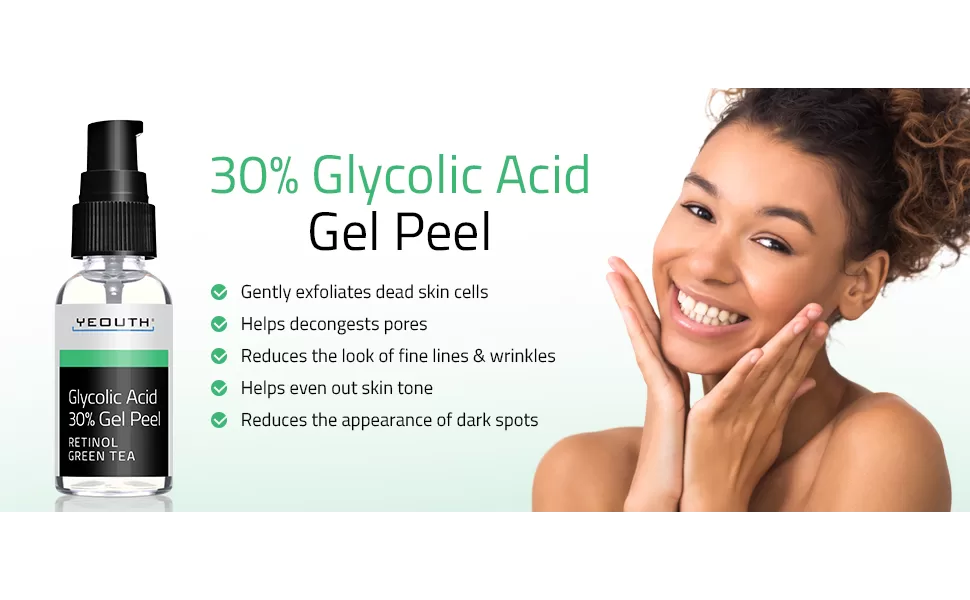
Enhancing Results with Professional Treatments
While daily skincare routines lay the foundation for healthy skin, incorporating professional treatments can significantly enhance results. These treatments address deeper skin concerns, improving texture by targeting fine lines, wrinkles, and discoloration. Options like chemical peels, laser therapy, and microdermabrasion can restore firmness and elasticity, providing a more youthful appearance.
The Power of a Comprehensive Approach
Combining at-home skincare with professional treatments creates a well-rounded regimen. This holistic approach not only improves the look of the skin but also boosts its health from within. By integrating regular professional consultations and treatments, you can achieve noticeable improvements in skin texture and overall radiance.
By weaving together daily care with advanced treatments, you ensure your skincare routine is both effective and transformative.
The Role of Hormones in Anti-aging Mature Skin
Hormonal changes, especially during menopause, can significantly impact skin health. Consider adding a brief explanation:
- Estrogen Decline: Reduced estrogen levels during menopause can lead to dryness, thinning skin, and a loss of elasticity.
- Hormonal Acne: Some women experience breakouts due to hormonal fluctuations, even in their 40s and 50s.
- Adapting Skincare: Products with phytoestrogens or ingredients like hyaluronic acid and ceramides can help counteract these effects.
The Importance of Patch Testing for Anti-aging Mature Skin
Mature skin can be more sensitive, so it’s crucial to patch-test new products before incorporating them into your routine. Explain how to do this:
- Apply a small amount of the product to a discreet area (like behind the ear or on the inner arm).
- Wait 24-48 hours to check for any adverse reactions, such as redness, itching, or irritation.
- If no reaction occurs, the product is likely safe to use.
Professional Treatments for Anti-aging Mature Skin
While at-home skincare is crucial, professional treatments can provide more dramatic results for mature skin. Consider adding a section on popular in-office treatments, such as:
- Chemical Peels: These exfoliate the skin, reducing fine lines, wrinkles, and hyperpigmentation.
- Microneedling: This stimulates collagen production and improves skin texture.
- Laser Resurfacing: Targets wrinkles, sun damage, and uneven skin tone.
- Botox and Fillers: Minimize wrinkles and restore volume to sagging areas.
- Radiofrequency and Ultrasound Treatments: Tighten skin and boost collagen production.
Enhance Your Routine with Expert Consultation
To truly optimize your anti-aging regimen, professional consultations are invaluable. Here’s how they can elevate your skincare:
- Personalized Guidance: Engage in a one-on-one consultation with a licensed aesthetician. This personalized interaction ensures that your specific skin concerns are addressed with tailored solutions.
- Customized Skincare Plans: Through thorough evaluations, professionals can design a skincare routine that aligns with your unique needs, maximizing the benefits of both at-home and in-office treatments.
- Access to Advanced Treatments: Professionals can recommend the most effective treatments for your skin type and concerns, ensuring that you get the best results from procedures like chemical peels and microneedling.
- Ongoing Support: Regular check-ins with skincare experts can help adjust your routine as your skin evolves, keeping your anti-aging strategy effective over time.
By incorporating professional insights and treatments, you can achieve a more youthful and revitalized appearance, ensuring your skincare routine is both comprehensive and effective.
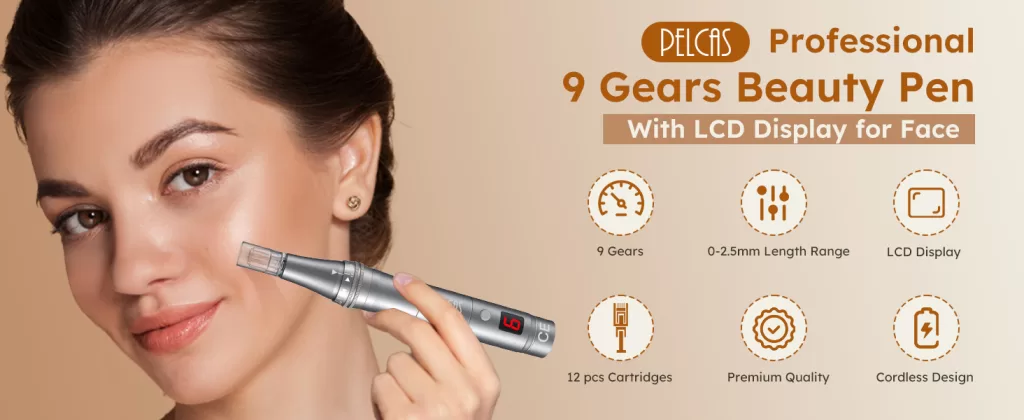
Frequently Asked Questions About Anti-aging Mature Skin (FAQs)
Q1: What is the best anti-aging serum for mature skin?
A: The best anti-aging serums contain ingredients like retinol, hyaluronic acid, and vitamin C. Look for serums that target your specific concerns, whether it’s fine lines, wrinkles, or loss of elasticity.
Q2: How can I tighten sagging skin naturally?
A: While no product can replace surgery, topical products with peptides and collagen-boosting ingredients can help improve the firmness and elasticity of sagging skin over time.
However, it’s important to set realistic expectations. Anti-aging skincare cannot fully reverse the visible effects of aging. Instead, a comprehensive regimen—combining these topical products with professional treatments—can yield significant improvements.
Consider integrating professional treatments such as:
- Chemical peels for reducing discoloration
- Microdermabrasion to smooth fine lines
- Laser therapy to enhance skin texture
These treatments, alongside your daily skincare routine, can significantly enhance the appearance of fine lines, wrinkles, and loss of firmness or elasticity. By adopting a multi-faceted approach, you can achieve a more youthful and revitalized appearance.
Q3: Can anti-aging products work for all skin types?
A: Yes, but it’s important to choose the right formula for your skin type. For dry skin, look for rich, moisturizing products. For oily skin, choose lightweight, non-comedogenic options. Always patch-test new products to ensure compatibility.
Q4: How long will it take to see results from anti-aging products?
A: It typically takes about 4-6 weeks to see noticeable improvements from anti-aging products, although results can vary based on individual skin conditions.
Q5: Can I use anti-aging products if I have sensitive skin?
A: Yes, but opt for gentle formulas with soothing ingredients like aloe vera, chamomile, or oat extract. Avoid harsh actives like high concentrations of retinol or strong acids.
Q6: How often should I exfoliate mature skin?
A: 1-2 times per week is usually sufficient. Over-exfoliating can damage the skin barrier.
Q7: Are natural or DIY remedies effective for anti-aging?
A: While some natural ingredients (like aloe vera or honey) can be soothing, they are not as effective as clinically proven actives like retinol or vitamin C. Always prioritize science-backed products.
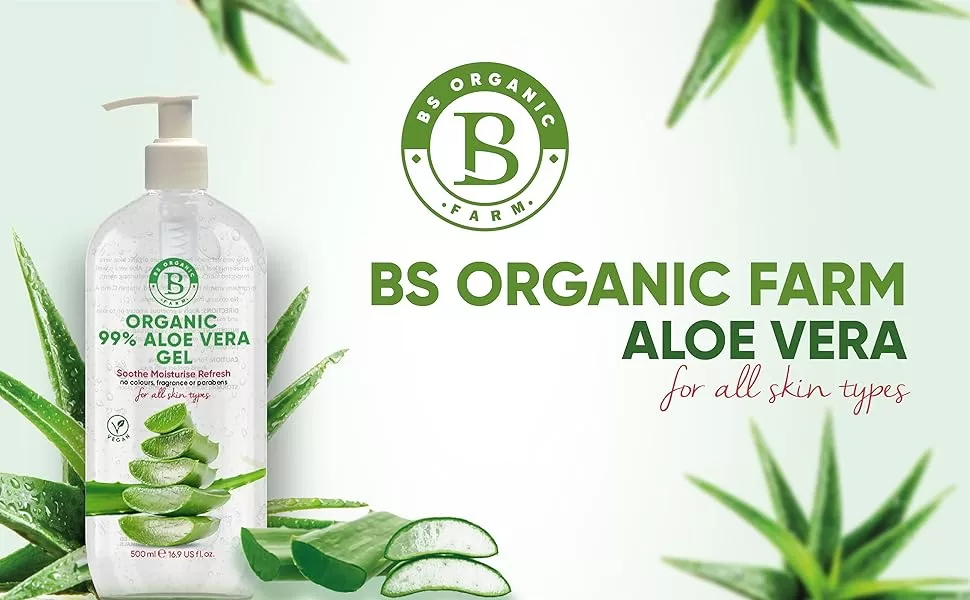
The Ultimate Guide
While this guide provides general tips and product recommendations, everyone’s skin is unique. For a tailored skincare plan, consider consulting a dermatologist who can address your specific needs and recommend treatments or products suited to your skin type and concerns.
It’s important to understand that anti-aging skincare cannot reverse the visible effects of aging skin. However, a comprehensive regimen, including high-quality anti-aging products and professional treatments, can significantly improve the appearance of fine lines, wrinkles, discoloration, and loss of firmness or elasticity.
To achieve the best results, consider integrating the following into your skincare routine:
- Use products with proven active ingredients: Look for ingredients like retinoids, peptides, and antioxidants that are known for their anti-aging benefits.
- Incorporate professional treatments: Consider treatments such as chemical peels, microdermabrasion, or laser therapies that can enhance the effectiveness of your skincare routine.
- Maintain a healthy lifestyle: Don’t underestimate the power of a balanced diet, regular exercise, and adequate hydration in supporting skin health.
Combining these approaches with professional guidance ensures that your skincare efforts are both effective and personalized, helping you achieve a more youthful and radiant complexion over time.
Conclusion: Embracing Timeless Beauty with Anti-aging Mature Skin Care
Taking care of mature skin is an act of self-love and confidence. With the right products, routines, and lifestyle choices, you can embrace your skin’s natural beauty at any age. Remember, aging is a privilege, and your skin tells a unique story. Celebrate it, nurture it, and let your timeless beauty shine through.
Related Article:
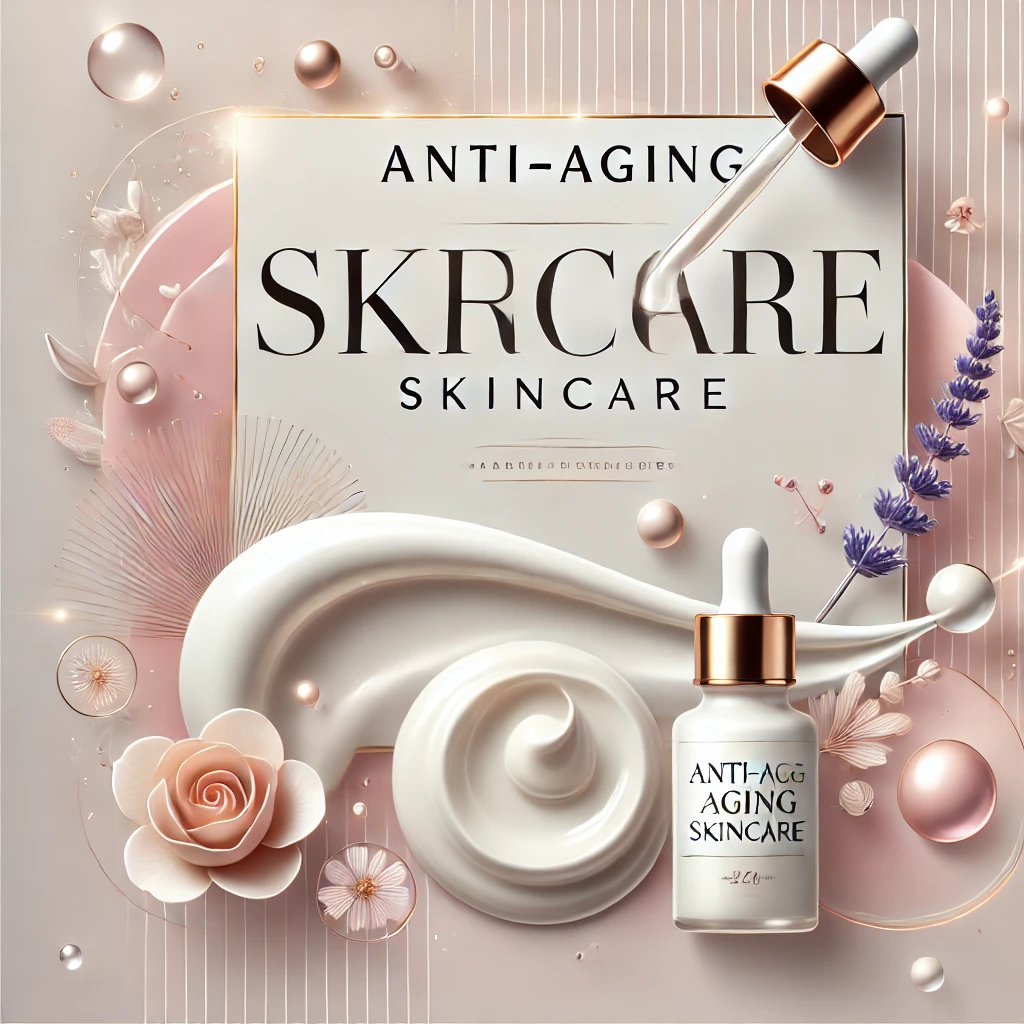
Top Anti-Aging Skincare Products to Transform Your Skin

Explore more articles like this @ Where And How Resources
If you found this article helpful, don’t forget to share it with your friends and followers!
